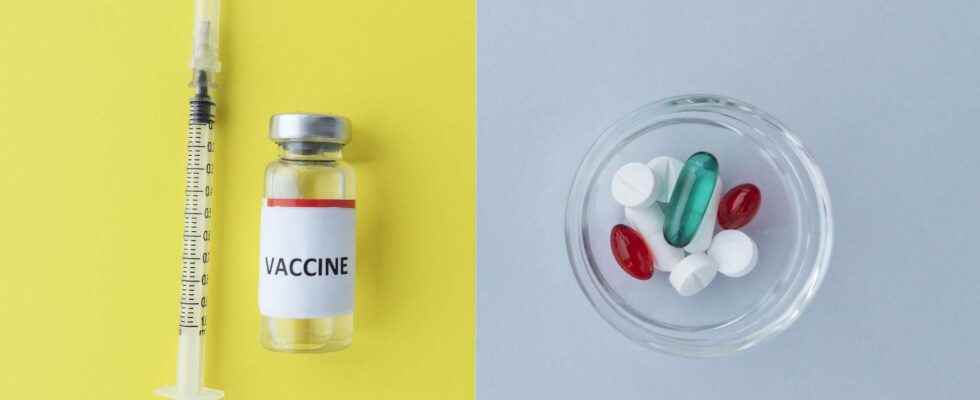Shots turn people off much more than pills, especially when it comes to preventing a disease you don’t yet have. The reasons are both historical and psychological.
While most people safely swallow dozens of capsules of dietary supplements or Doliprane, they get scared at the mere sight of a needle. The reason for this difference is to be found in our past. Indeed, Men have been using herbal remedies for millennia, to drink in decoction or to apply to the skin in poultice. The oldest evidence ofuse of medicinal plants date back 370,000 years to Homo erectus, and the oldest medicinal recipe guide is a Tablet Agile from Mesopotamia dated to 2,400 BC.
The vaccine, a relatively recent invention
By comparison, the idea of injecting a substance through the skin is relatively new. ” Historically, piercing the skin is more related to spears or rifle bullets, which are intended to injure », attests the archaeologist Monica L. Smith. Some invasive techniques such as trepanation, L’acupuncture or amputations have been tried, but with little success. But performing an injection to prevent illness when you are not yet sick is seen as even more risky. The first inoculation against smallpox dates back to the beginning of the 18thand century, which mostly consisted of buying a few scabs or pus to a person suffering from smallpox natural, then puncture the skin with the contaminated needle. The first hypodermic syringe (used to administer vaccines) was invented in the 1850s.
For a long time, people were more concerned with curing disease than preventing it.
What’s more, ” for a long time, men were more concerned with the healing disease rather than prevention, in a context where there were far greater dangers, recalls Monica L. Smith. Add discomfort perceived as unnecessary [la piqûre] didn’t really make sense “. Finally, while the effects of a drug are noticeable only a few minutes or a few hours after taking it, the effects of an injection are often spread out over time, which does not help to estimate the benefits.
The psychological effect of the pills
Another distinction between vaccine and medicine is due to the fact that we take medications independently, whereas the injection must be performed by a third party, most often a stranger. With drugs, it is also possible to play on a psychological effect, with forms and colors varied. A study of BMJ thus shows that blue and green pills are associated with a “calming” effect, while yellow or orange pills are used to improve concentration or dynamism. A “marketing” impossible to apply to vaccines, which are most colorless and in the form liquid.
Spray, patch or capsule vaccines
Rather than going against our natural reluctance towards injections, vaccine manufacturers are trying to find new ways of administering them less invasive. The vaccines against polio or typhoid fever are thus already available in oral form, and the vaccine against seasonal influenza exists as a nasal spray. Other forms are still envisaged, such as patches with micro-needles or tablets to dissolve under the tongue. Vaccines which have the additional advantage of store at room temperature, to be easily distributed in pharmacies and which cost less than syringes!
Interested in what you just read?
Subscribe to the newsletter Health question of the week : our answer to a question you ask yourself (more or less secretly). All our newsletters
